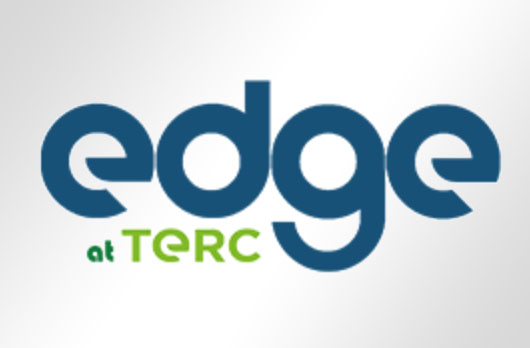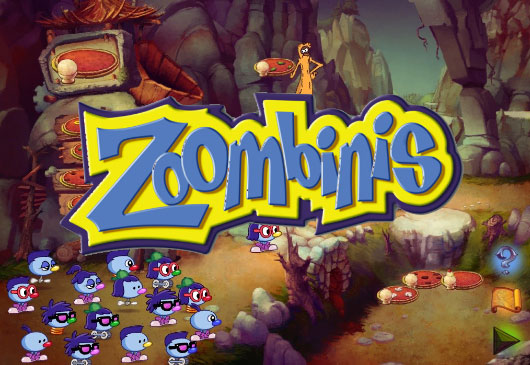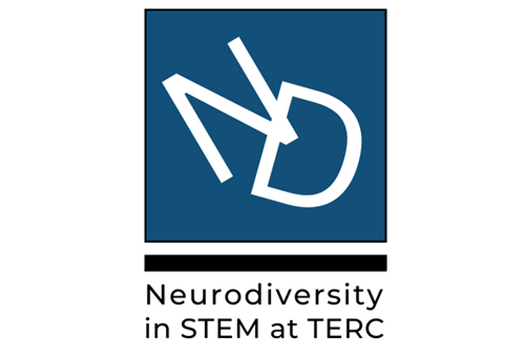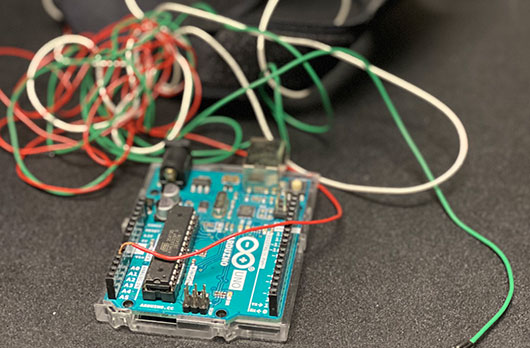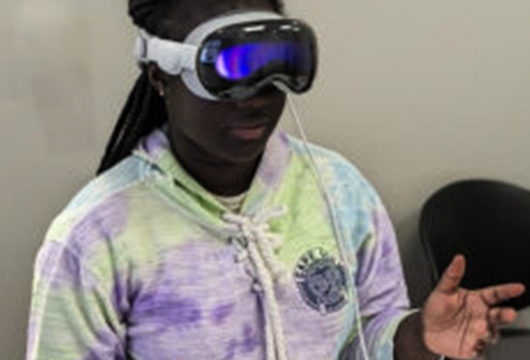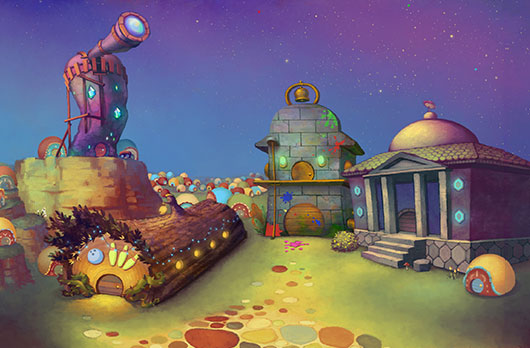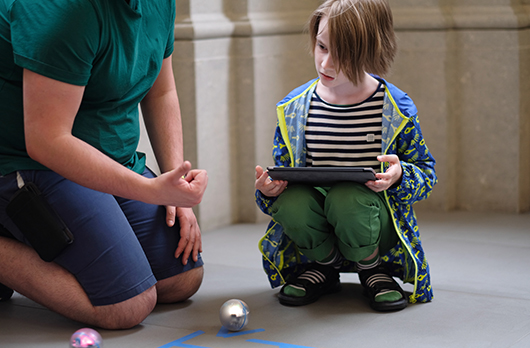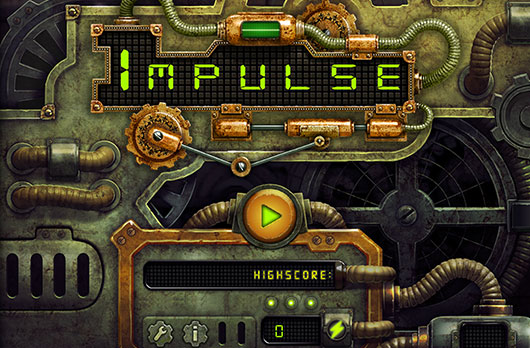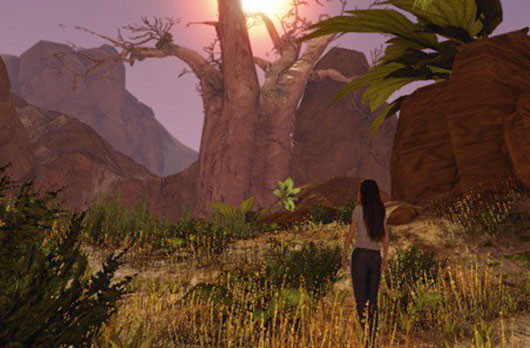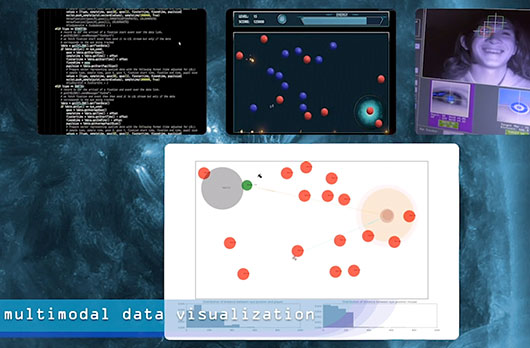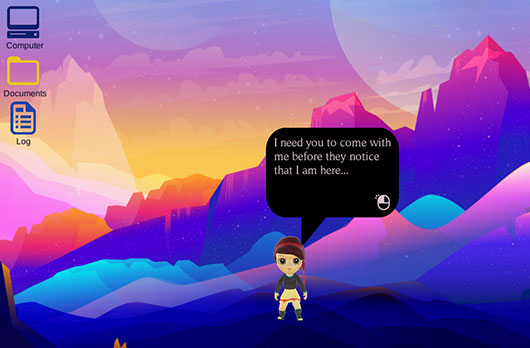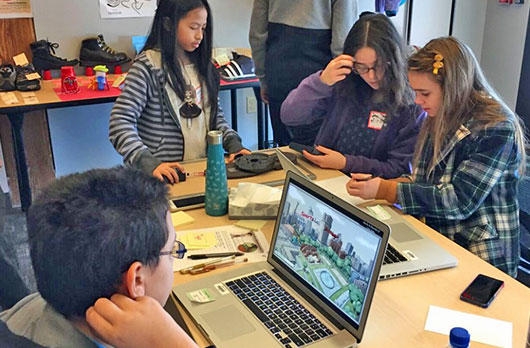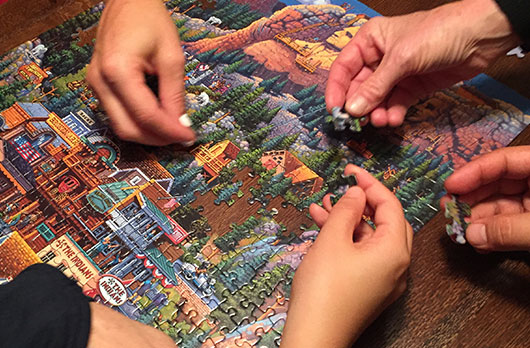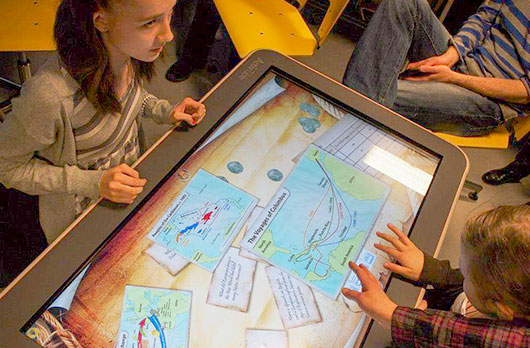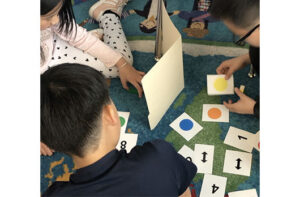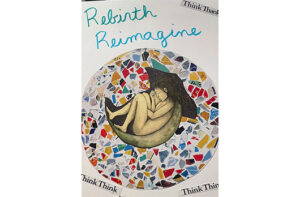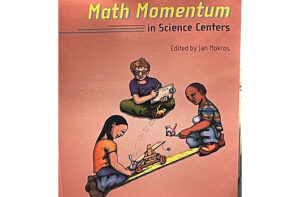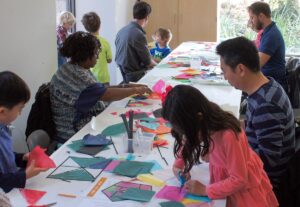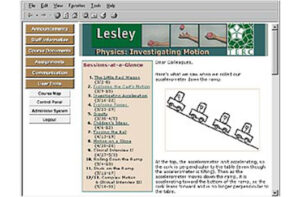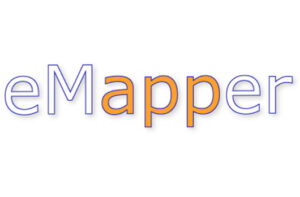EdGE
EdGE is a team of educators, designers, and researchers who design and research STEM-learning games, as well as other technology tools for differentiated and adaptive learning.
Lead Staff:
Teon EdwardsProject Staff:
Jodi Asbell-ClarkeZac Alstad
Erin Bardar
Ibrahim Dahlstrom-Hakki
Jamie Larsen
Kelly Paulson
Tara Robillard
Elizabeth Rowe
Renee Pawlowski
SummaryEdGE designs and studies digital games, environments, tools, and other materials to learn how to engage all learners in STEM, especially those who are “falling through the cracks”.
Using innovative methods in design and research, EdGE has grown a suite of research-based STEM learning games and is helping inform the field about how game-based learning can be used to reach learners with cognitive differences (e.g. Autism, dyslexia or dyscalculia, ADHD, and other learning differences).
EdGE research often uses the digital data logs generated through gameplay to create innovative assessments that measure what learners can do — not just what they can say on test. EdGE has designed an innovative method and suite of tools for game-based learning assessment (GBLA) that help researchers study learners’ patterns of activity within learning environments to understand what they know. Using Educational Data Mining (EDM), EdGE researchers build automated detectors based upon theoretical grounding and following extensive observational research to identify evidence of learning of STEM learning (science, math, and computational thinking) as well as social-emotional aspects of learning in various game contexts.
More recently, EdGE has broadened its focus to the uses of AR, VR, AI, and other innovative technology tools for teaching and learning, exploring the possible affordances and benefits, while also considering the potential challenges and problems.
Areas of Interest
- Education for all learners
- Free-choice Science, Math, and Computational Thinking learning games; playful learning environments and materials that transcend formal and informal boundaries
- Using digital technologies to foster experiences not otherwise possible and to (re)connect learners with the outdoors
- Game-based learning assessments of STEM and Social-Emotional Learning (SEL)
- Teacher “bridging” to make connections between implicit game-based learning and explicit classroom learning.
- Implicit assessments that can be applied to a range of digital learning environments
- Educational Data Mining for automated detection of implicit STEM learning and SEL
- Differentiation and adaptation for people with learning differences
- Neurodiversity in STEM
- Affordances and potential, challenges and problems of innovative technologies for teaching and learning
EdGE's HistoryIn 2009, Jodi Asbell-Clarke, Teon Edwards, and Jamie Larsen co-founded the Educational Gaming Environments group (EdGE) at TERC, beginning with the Blue Mars Science Center—the design and research of a science-inquiry game in the massively multiplayer online environment (MMO), or virtual world, Blue Mars (NSF grant #0917520). The EdGE game Martian Boneyards engaged over 600 adult players in solving a science-based mystery for 4 months in 2010. Following this successful proof of concept for game-based learning and assessment, EdGE’s work and team expanded and evolved with a broad array of projects.
Today, EdGE’s work continues, as the team strives to design research-grounded methods for differentiation and inclusion of cognitively diverse learners in STEM and CT. The work often still centers around games and gaming environments, but also explores other technologies (e.g., AR, VR, and generative AI) and other means of engaging learners who are not currently being well served.
Key Projects and Other Initiatives
- Blue Mars Science Center (NSF grant #0917520) — EdGE designed and researched a science-inquiry game, Martian Boneyards, in the massively multiplayer online environment (MMO), or virtual world, Blue Mars.
- Arcadia Resource Center and Arcadia: The Next Generation (NSF grants #1043357 and #1134919) — EdGE designed and researched the web-based scientific-mystery game Canaries in a Coalmine, endeavoring to engage the public with online scientific resources about birds.
- Leveling Up (NSF grant #119144) — EdGE designed a set of mobile game apps to build players’ tacit, or implicit, science learning through gameplay and researched the roles educators play in bridging to the explicit, classroom-content learning.
- FUN: Finland-US Network (NSF grant #1252709) — EdGE collaborated with US and Finnish partners to study engagement and learning in games, looking at cross-cultural and cross-institutional research opportunities.
- SportsLab (NSF grant #1311901) — EdGE created an online gaming platform and ran a parkour shoe design competition, in conjunction with Nike, using interest in sports to build students’ awareness of STEM careers and develop their 21st Century skills.
- Revealing the Invisible (NSF grant #1417967) — EdGE teamed with Landmark College and MIT to use eye tracking and the Leveling Up game Impulse to study player attention, focusing on students with learning differences such as dyslexia, ADHD, and/or an autism spectrum disorder.
- STEMlandia and STEMlandia XR — EdGE worked to exploit digital tools, including geocaching and mixed reality, to get people outside and (re)engaged with the science, and world, around us.
- Taking Games to School (NSF grant #1415284) — EdGE investigated teacher dashboards and using the Zoombinis gameplay data logs and detectors, which were vital to the research, to deliver actionable tools, information, and resources to teachers.
- Zoombinis Implementation Study (NSF grant #1502882) — EdGE conducted a nationwide implementation study on how the game Zoombinis and bridging curriculum materials impact grade 3-8 students’ computational thinking (CT) skills.
- CodePlay (NSF grant #1738574) — EdGE and the Braintree Public Schools in Braintree, MA conducted a research-practice partnership (RPP) to co-design and research how computational thinking (CT) can support STEM learning in grades 3-8, with a focus on differentiation for cognitively diverse learners.
- AR with PTC — EdGE worked with the company PTC to explore the potential of the Internet of Things (IoT) and Augmented Reality (AR) in K-12 education.
- May’s Journey (NSF grant #1810972) — EdGE explored the design and development of the 3D puzzle-based game May’s Journey, which uses game design mechanics as metaphors to enhance learning of introductory programming concepts.
- INFACT (Department of Ed grant U411C190179)— EdGE worked with a team of leading researchers and practitioners to design, develop, and implement a comprehensive and inclusive program for computational thinking (CT) in grades 3-8.
Current Projects
- UniVRsal Access (NSF grant #2005447) — EdGE is co-designing the virtual reality (VR) game Europa Prime with neurodivergent learners and researching the possible affordances and limitations of VR and AI for learning.
- AugmentedEF (NSF grant #2202291) — EdGE is using augmented reality (AR) to support post-secondary learners with attention deficits and executive function (EF) needs.
- NeuroVivid (NSF grant #2241380) — EdGE is co-designing, developing, and researching a maker curriculum aimed at strengthening the future STEM workforce by engaging neurodiverse middle schoolers around EEG headsets to understand and interact with their own brain activity.
- Zoombinis Club — EdGE is developing and offering an informal education program centered around the game Zoombinis.
- NDinSTEM — EdGE is part of a network of educators, researchers, and designers studying new methods to reveal, nurture, and support STEM problem-solving talents in neurodivergent learners.
EdGE designs and studies digital games, environments, tools, and other materials to learn how to engage all learners in STEM, especially those who are “falling through the cracks”.
Using innovative methods in design and research, EdGE has grown a suite of research-based STEM learning games and is helping inform the field about how game-based learning can be used to reach learners with cognitive differences (e.g. Autism, dyslexia or dyscalculia, ADHD, and other learning differences).
EdGE research often uses the digital data logs generated through gameplay to create innovative assessments that measure what learners can do — not just what they can say on test. EdGE has designed an innovative method and suite of tools for game-based learning assessment (GBLA) that help researchers study learners’ patterns of activity within learning environments to understand what they know. Using Educational Data Mining (EDM), EdGE researchers build automated detectors based upon theoretical grounding and following extensive observational research to identify evidence of learning of STEM learning (science, math, and computational thinking) as well as social-emotional aspects of learning in various game contexts.
More recently, EdGE has broadened its focus to the uses of AR, VR, AI, and other innovative technology tools for teaching and learning, exploring the possible affordances and benefits, while also considering the potential challenges and problems.
- Education for all learners
- Free-choice Science, Math, and Computational Thinking learning games; playful learning environments and materials that transcend formal and informal boundaries
- Using digital technologies to foster experiences not otherwise possible and to (re)connect learners with the outdoors
- Game-based learning assessments of STEM and Social-Emotional Learning (SEL)
- Teacher “bridging” to make connections between implicit game-based learning and explicit classroom learning.
- Implicit assessments that can be applied to a range of digital learning environments
- Educational Data Mining for automated detection of implicit STEM learning and SEL
- Differentiation and adaptation for people with learning differences
- Neurodiversity in STEM
- Affordances and potential, challenges and problems of innovative technologies for teaching and learning
EdGE's HistoryIn 2009, Jodi Asbell-Clarke, Teon Edwards, and Jamie Larsen co-founded the Educational Gaming Environments group (EdGE) at TERC, beginning with the Blue Mars Science Center—the design and research of a science-inquiry game in the massively multiplayer online environment (MMO), or virtual world, Blue Mars (NSF grant #0917520). The EdGE game Martian Boneyards engaged over 600 adult players in solving a science-based mystery for 4 months in 2010. Following this successful proof of concept for game-based learning and assessment, EdGE’s work and team expanded and evolved with a broad array of projects.
Today, EdGE’s work continues, as the team strives to design research-grounded methods for differentiation and inclusion of cognitively diverse learners in STEM and CT. The work often still centers around games and gaming environments, but also explores other technologies (e.g., AR, VR, and generative AI) and other means of engaging learners who are not currently being well served.
Key Projects and Other Initiatives
- Blue Mars Science Center (NSF grant #0917520) — EdGE designed and researched a science-inquiry game, Martian Boneyards, in the massively multiplayer online environment (MMO), or virtual world, Blue Mars.
- Arcadia Resource Center and Arcadia: The Next Generation (NSF grants #1043357 and #1134919) — EdGE designed and researched the web-based scientific-mystery game Canaries in a Coalmine, endeavoring to engage the public with online scientific resources about birds.
- Leveling Up (NSF grant #119144) — EdGE designed a set of mobile game apps to build players’ tacit, or implicit, science learning through gameplay and researched the roles educators play in bridging to the explicit, classroom-content learning.
- FUN: Finland-US Network (NSF grant #1252709) — EdGE collaborated with US and Finnish partners to study engagement and learning in games, looking at cross-cultural and cross-institutional research opportunities.
- SportsLab (NSF grant #1311901) — EdGE created an online gaming platform and ran a parkour shoe design competition, in conjunction with Nike, using interest in sports to build students’ awareness of STEM careers and develop their 21st Century skills.
- Revealing the Invisible (NSF grant #1417967) — EdGE teamed with Landmark College and MIT to use eye tracking and the Leveling Up game Impulse to study player attention, focusing on students with learning differences such as dyslexia, ADHD, and/or an autism spectrum disorder.
- STEMlandia and STEMlandia XR — EdGE worked to exploit digital tools, including geocaching and mixed reality, to get people outside and (re)engaged with the science, and world, around us.
- Taking Games to School (NSF grant #1415284) — EdGE investigated teacher dashboards and using the Zoombinis gameplay data logs and detectors, which were vital to the research, to deliver actionable tools, information, and resources to teachers.
- Zoombinis Implementation Study (NSF grant #1502882) — EdGE conducted a nationwide implementation study on how the game Zoombinis and bridging curriculum materials impact grade 3-8 students’ computational thinking (CT) skills.
- CodePlay (NSF grant #1738574) — EdGE and the Braintree Public Schools in Braintree, MA conducted a research-practice partnership (RPP) to co-design and research how computational thinking (CT) can support STEM learning in grades 3-8, with a focus on differentiation for cognitively diverse learners.
- AR with PTC — EdGE worked with the company PTC to explore the potential of the Internet of Things (IoT) and Augmented Reality (AR) in K-12 education.
- May’s Journey (NSF grant #1810972) — EdGE explored the design and development of the 3D puzzle-based game May’s Journey, which uses game design mechanics as metaphors to enhance learning of introductory programming concepts.
- INFACT (Department of Ed grant U411C190179)— EdGE worked with a team of leading researchers and practitioners to design, develop, and implement a comprehensive and inclusive program for computational thinking (CT) in grades 3-8.
Current Projects
- UniVRsal Access (NSF grant #2005447) — EdGE is co-designing the virtual reality (VR) game Europa Prime with neurodivergent learners and researching the possible affordances and limitations of VR and AI for learning.
- AugmentedEF (NSF grant #2202291) — EdGE is using augmented reality (AR) to support post-secondary learners with attention deficits and executive function (EF) needs.
- NeuroVivid (NSF grant #2241380) — EdGE is co-designing, developing, and researching a maker curriculum aimed at strengthening the future STEM workforce by engaging neurodiverse middle schoolers around EEG headsets to understand and interact with their own brain activity.
- Zoombinis Club — EdGE is developing and offering an informal education program centered around the game Zoombinis.
- NDinSTEM — EdGE is part of a network of educators, researchers, and designers studying new methods to reveal, nurture, and support STEM problem-solving talents in neurodivergent learners.
In 2009, Jodi Asbell-Clarke, Teon Edwards, and Jamie Larsen co-founded the Educational Gaming Environments group (EdGE) at TERC, beginning with the Blue Mars Science Center—the design and research of a science-inquiry game in the massively multiplayer online environment (MMO), or virtual world, Blue Mars (NSF grant #0917520). The EdGE game Martian Boneyards engaged over 600 adult players in solving a science-based mystery for 4 months in 2010. Following this successful proof of concept for game-based learning and assessment, EdGE’s work and team expanded and evolved with a broad array of projects.
Today, EdGE’s work continues, as the team strives to design research-grounded methods for differentiation and inclusion of cognitively diverse learners in STEM and CT. The work often still centers around games and gaming environments, but also explores other technologies (e.g., AR, VR, and generative AI) and other means of engaging learners who are not currently being well served.
- Blue Mars Science Center (NSF grant #0917520) — EdGE designed and researched a science-inquiry game, Martian Boneyards, in the massively multiplayer online environment (MMO), or virtual world, Blue Mars.
- Arcadia Resource Center and Arcadia: The Next Generation (NSF grants #1043357 and #1134919) — EdGE designed and researched the web-based scientific-mystery game Canaries in a Coalmine, endeavoring to engage the public with online scientific resources about birds.
- Leveling Up (NSF grant #119144) — EdGE designed a set of mobile game apps to build players’ tacit, or implicit, science learning through gameplay and researched the roles educators play in bridging to the explicit, classroom-content learning.
- FUN: Finland-US Network (NSF grant #1252709) — EdGE collaborated with US and Finnish partners to study engagement and learning in games, looking at cross-cultural and cross-institutional research opportunities.
- SportsLab (NSF grant #1311901) — EdGE created an online gaming platform and ran a parkour shoe design competition, in conjunction with Nike, using interest in sports to build students’ awareness of STEM careers and develop their 21st Century skills.
- Revealing the Invisible (NSF grant #1417967) — EdGE teamed with Landmark College and MIT to use eye tracking and the Leveling Up game Impulse to study player attention, focusing on students with learning differences such as dyslexia, ADHD, and/or an autism spectrum disorder.
- STEMlandia and STEMlandia XR — EdGE worked to exploit digital tools, including geocaching and mixed reality, to get people outside and (re)engaged with the science, and world, around us.
- Taking Games to School (NSF grant #1415284) — EdGE investigated teacher dashboards and using the Zoombinis gameplay data logs and detectors, which were vital to the research, to deliver actionable tools, information, and resources to teachers.
- Zoombinis Implementation Study (NSF grant #1502882) — EdGE conducted a nationwide implementation study on how the game Zoombinis and bridging curriculum materials impact grade 3-8 students’ computational thinking (CT) skills.
- CodePlay (NSF grant #1738574) — EdGE and the Braintree Public Schools in Braintree, MA conducted a research-practice partnership (RPP) to co-design and research how computational thinking (CT) can support STEM learning in grades 3-8, with a focus on differentiation for cognitively diverse learners.
- AR with PTC — EdGE worked with the company PTC to explore the potential of the Internet of Things (IoT) and Augmented Reality (AR) in K-12 education.
- May’s Journey (NSF grant #1810972) — EdGE explored the design and development of the 3D puzzle-based game May’s Journey, which uses game design mechanics as metaphors to enhance learning of introductory programming concepts.
- INFACT (Department of Ed grant U411C190179)— EdGE worked with a team of leading researchers and practitioners to design, develop, and implement a comprehensive and inclusive program for computational thinking (CT) in grades 3-8.
Current Projects
- UniVRsal Access (NSF grant #2005447) — EdGE is co-designing the virtual reality (VR) game Europa Prime with neurodivergent learners and researching the possible affordances and limitations of VR and AI for learning.
- AugmentedEF (NSF grant #2202291) — EdGE is using augmented reality (AR) to support post-secondary learners with attention deficits and executive function (EF) needs.
- NeuroVivid (NSF grant #2241380) — EdGE is co-designing, developing, and researching a maker curriculum aimed at strengthening the future STEM workforce by engaging neurodiverse middle schoolers around EEG headsets to understand and interact with their own brain activity.
- Zoombinis Club — EdGE is developing and offering an informal education program centered around the game Zoombinis.
- NDinSTEM — EdGE is part of a network of educators, researchers, and designers studying new methods to reveal, nurture, and support STEM problem-solving talents in neurodivergent learners.
- UniVRsal Access (NSF grant #2005447) — EdGE is co-designing the virtual reality (VR) game Europa Prime with neurodivergent learners and researching the possible affordances and limitations of VR and AI for learning.
- AugmentedEF (NSF grant #2202291) — EdGE is using augmented reality (AR) to support post-secondary learners with attention deficits and executive function (EF) needs.
- NeuroVivid (NSF grant #2241380) — EdGE is co-designing, developing, and researching a maker curriculum aimed at strengthening the future STEM workforce by engaging neurodiverse middle schoolers around EEG headsets to understand and interact with their own brain activity.
- Zoombinis Club — EdGE is developing and offering an informal education program centered around the game Zoombinis.
- NDinSTEM — EdGE is part of a network of educators, researchers, and designers studying new methods to reveal, nurture, and support STEM problem-solving talents in neurodivergent learners.
